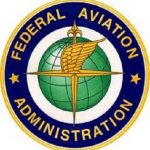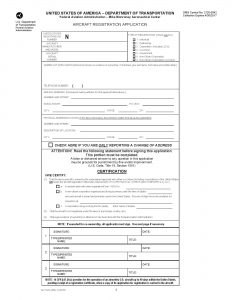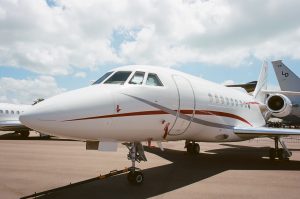In order for the FAA to accept an application for aircraft registration submitted by an aircraft owner-applicant, the applicant must comply with the registration requirements of 49 U.S.C. 40102(a)(15) and 44102. Applicants must also comply with 14 C.F.R. Part 47.
The applicant requirements vary somewhat depending upon whether the applicant is an individual, a partnership, a corporation, a limited liability company etc. If the applicant is unable to satisfy the requirements, the FAA will not accept an application for registration from the applicant.
Here is a short summary discussing a few of the types of applicants and applicable FAA registration requirements:
Individual
An individual is eligible to register an aircraft if the individual is a U.S. citizen or a resident alien. This means a warm body, not an entity that might otherwise be considered a person under the law. Pretty straightforward.
Partnership
Two types of partnerships may be eligible to register an aircraft: (1) a general partnership; or (2) a limited partnership. A general partnership is an association of at least two or more individual persons to carry on a business for profit. A limited partnership may include one or more “general partners” and any number of “limited partners.
Under 14 C.F.R. § 47.7(d), a partnership is eligible to register an aircraft if all of its partners are individuals who are U.S. citizens. Here again, “individual” person means a warm body, not an entity such as a corporation that may otherwise be considered a “person” under the law. Also, a resident alien may not be a member of a partnership.
Although many states also recognize limited liability partnerships or registered limited liability partnerships, these entities are treated like any other partnership. So, they must include only individual members who are U.S. citizens in order to register an aircraft. Similarly, in order to be eligible for registration, a limited partnership must be comprised entirely of individual U.S. citizens.
However, most limited partnerships are formed with limited partners, who may be individuals or entities, and a general partner that is usually an entity rather than an individual (for liability protection purposes). As a result, limited partnerships do not usually satisfy the citizenship requirements for registering an aircraft.
 Corporation
Corporation
U.S. Citizen Corporation: Under 14 C.F.R. § 47.2(2), a corporation is eligible to register an aircraft as a U.S. citizen if:
-
it is created or “incorporated under the laws of the U.S., or any State, Territory, or possession of the U.S.;
-
the corporation’s president and two-thirds or more of its Board of Directors are U.S. citizens, and;
-
at least 75% of the voting interest in the corporation is owned or controlled by U.S. citizens.
In this situation, the FAA wants to ensure that the corporation is actually controlled by U.S. citizens. But what happens is the corporation satisfies items (1) and (2), but it does not meet the 75% quota? Under 14 C.F.R. § 47.8 the corporation may still be able to qualify as a U.S. citizen if it uses a voting trust which appoints a voting trustee (who must be a U.S. citizen) to exercise the voting rights necessary to satisfy the 75% quota.
Non-Citizen U.S. Corporation: If a corporation is incorporated in the U.S. but does not meet the citizenship requirements for registration, under 14 C.F.R. § 47.9 that non-citizen corporation may still be eligible to register an aircraft. The corporation must:
-
be lawfully organized and qualified to do business under the laws of the U.S. or any State, Territory, or possession of the U.S.; and
-
certify that the aircraft is based and primarily used in the U.S., meaning at least 60% of the aircraft’s total flight hours during each six month period after application must be within the U.S. Flight hours must be for non-stop flights between two points within the U.S., although the aircraft may be outside the U.S. during part of the non-stop flight.



